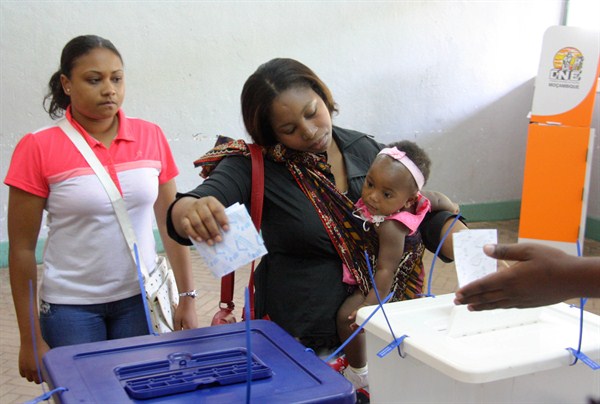Earlier this month, Mozambique passed an amnesty law that will allow Afonso Dhlakama, leader of the opposition Renamo party, to return from hiding and run in the Oct. 15 presidential election. In an email interview, Elisabete Azevedo-Harman, research fellow at Chatham House, discussed the evolving political landscape in Mozambique.
WPR: How much support do the Renamo and ruling Frelimo parties have, and is there a clear front-runner for October's elections?
Elisabete Azevedo-Harman: Mozambique does not have a tradition of comprehensive electoral polls and it is therefore not possible to predict outcomes. General perceptions indicate that Frelimo and its presidential candidate are expected to win, as they have done in all previous multiparty elections. But they are likely to find themselves with less than the two-thirds majority they currently enjoy. The relative newcomer to Mozambique’s political spectrum, the Democratic Movement of Mozambique (MDM) party, could challenge Renamo’s traditional role as the official opposition. This will be the second general election that MDM is participating in and, based on their results at November 2013’s municipal elections, the party is likely to make substantial gains on their current eight seats in Mozambique’s 250 seat Assembly. The MDM has never received wide support in municipal elections, but it won in three provincial capitals and received over 40 percent of the vote in the capital, Maputo; it was the first opposition party to see such success in the south.

